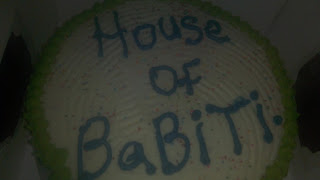1. Global Warming Cause: Carbon dioxide emissions from fossil fuel burning power plants.
Our ever increasing addiction to electricity from coal burning power plants releases enormous amounts of carbon dioxide into the atmosphere. 40% of U.S. CO2 emissions come from electricity production, and burning coal accounts for 93% of emissions from the electric utility industry [ EPA, pg. 10]. Every day, more electric gadgets flood the market, and without widespread alternative energy sources, we are highly dependent on burning coal for our personal and commercial electrical supply.
2. Global Warming Cause: Carbon dioxide emissions from burning gasoline for transportation.
Our modern car culture and appetite for globally sourced goods is responsible for about 33% of emissions in the U.S. [ EPA pg. 8] With our population growing at an alarming rate, the demand for more cars and consumer goods means that we are increasing the use of fossil fuels for transportation and manufacturing. Our consumption is outpacing our discoveries of ways to mitigate the effects, with no end in sight to our massive consumer culture.
3. Global Warming Cause: Methane emissions from animals , agriculture such as rice paddies, and from Arctic seabeds.
Methane is another extremely potent greenhouse gas, ranking right behind CO2. When organic matter is broken down by bacteria under oxygen-starved conditions (anaerobic decomposition) as in rice paddies, methane is produced. The process also takes place in the intestines of herbivorous animals, and with the increase in the amount of concentrated livestock production, the levels of methane released into the atmosphere is increasing. Another source of methane is methane clathrate, a compound containing large amounts of methane trapped in the crystal structure of ice. As
methane escapes from the Arctic seabed , the rate of global warming will increase significantly.
4. Global Warming Cause: Deforestation , especially tropical forests for wood, pulp, and farmland.
The use of forests for fuel (both wood and for charcoal) is one cause of deforestation, but in the first world, our appetite for wood and paper products, our consumption of livestock grazed on former forest land, and the use of tropical forest lands for commodities like palm oil plantations contributes to the mass deforestation of our world. Forests remove and store carbon dioxide from the atmosphere, and this deforestation releases large amounts of carbon, as well as reducing the amount of carbon capture on the planet.
5. Global Warming Cause: Increase in usage of chemical fertilizers on croplands.
In the last half of the 20th century, the use of chemical fertilizers (as opposed to the historical use of animal manure) has risen dramatically. The high rate of application of nitrogen-rich fertilizers has effects on the heat storage of cropland (nitrogen oxides have 300 times more heat-trapping capacity per unit of volume than carbon dioxide) and the run-off of excess fertilizers creates ‘dead-zones’ in our oceans. In addition to these effects, high nitrate levels in groundwater due to over-fertilization are cause for concern for human health.
6. Global Warming Effect: Rise in sea levels worldwide
Scientists predict an increase in sea levels worldwide due to the melting of two massive ice sheets in Antarctica and Greenland, especially on the East coast of the U.S . However, many nations around the world will experience the effects of
rising sea levels , which could displace millions of people. One nation, the Maldives, is already looking for a new home, thanks to rising sea levels.
7. Global Warming Effect: More killer storms.
The severity of storms such as hurricanes and cyclones is increasing, and research published in Nature found:
“Scientists have come up with the firmest evidence so far that global warming will significantly increase the intensity of the most extreme storms worldwide . The maximum wind speeds of the strongest tropical cyclones have increased significantly since 1981, according to research published in Nature this week. And the upward trend, thought to be driven by rising ocean temperatures, is unlikely to stop at any time soon.”
8. Global Warming Effect: Massive crop failures
According to recent research, there is a
90% chance that 3 billion people worldwide will have to choose between moving their families to milder climes and going hungry due to climate change within 100 years. One of the main causes of this will be the spread of desertification, and its accompanying effects.
“Climate change is expected to have the most severe impact on water supplies. “Shortages in future are likely to threaten food production, reduce sanitation, hinder economic development and damage ecosystems. It causes more violent swings between floods and droughts.”” – Guardian: Global warming causes 300,000 deaths a year.
9. Global Warming Effect: Widespread extinction of species.
According to research published in Nature, by 2050, rising temperatures could lead to the extinction of more than a million species. And because we can’t exist without a diverse population of species on Earth, this is scary news for humans.
This 6th mass extinction is really just a continuation of the holocene extinction which began at the end of the last ice age and has resulted in the extinction of nearly all of the Earth’s megafauna animals, largely as a result of human-expansion.
“Climate change now represents at least as great a threat to the number of species surviving on Earth as habitat-destruction and modification.” Chris Thomas, conservation biologist at the University of Leeds
Widespread species loss and lists of endangered species just keep growing. This is a concerning matter on many fronts.
10. Global Warming Effect: Disappearance of coral reefs
A report on coral reefs from WWF says that in a worst case scenario, coral populations will collapse by 2100 due to increased temperatures and ocean acidification. The ‘bleaching’ of corals from small but prolonged rises in sea temperature is a severe danger for ocean ecosystems, and many other species in the oceans rely on coral reefs for their survival.
“Despite the oceans’s immensity — 71 per cent of the Earth’s surface with an average depth of almost 4km (2½m) — there are indications that it is approaching its tipping point. For reefs, warming waters and acidification are closing in like a pair of jaws that threaten to make them the first global ecosystem to disappear.” – Times Online: 21st-century Noah’s Ark needed to save coral reefs from extinction.
Source: planetsave.com/2009/06/07/global-warming-effects-and-causes-a-top-10-list


















































